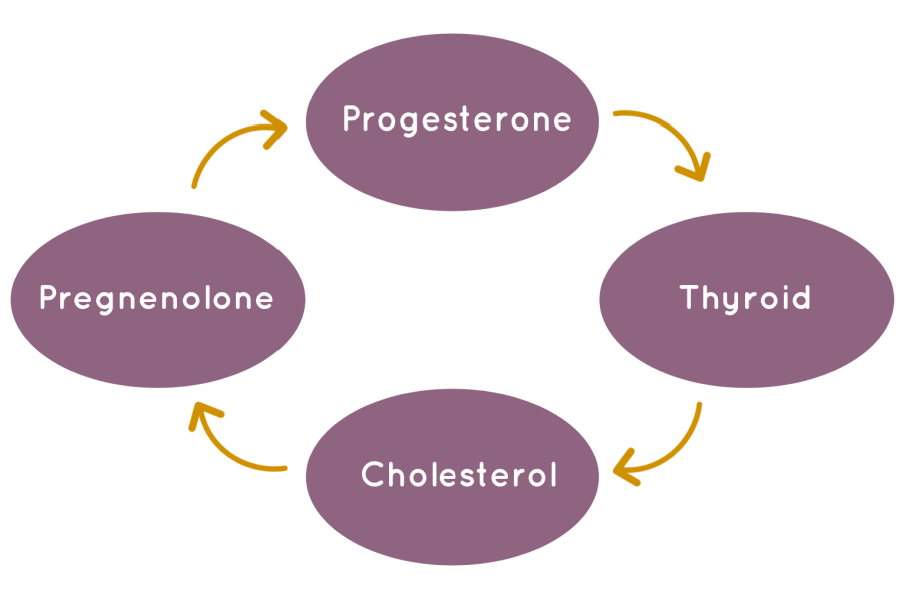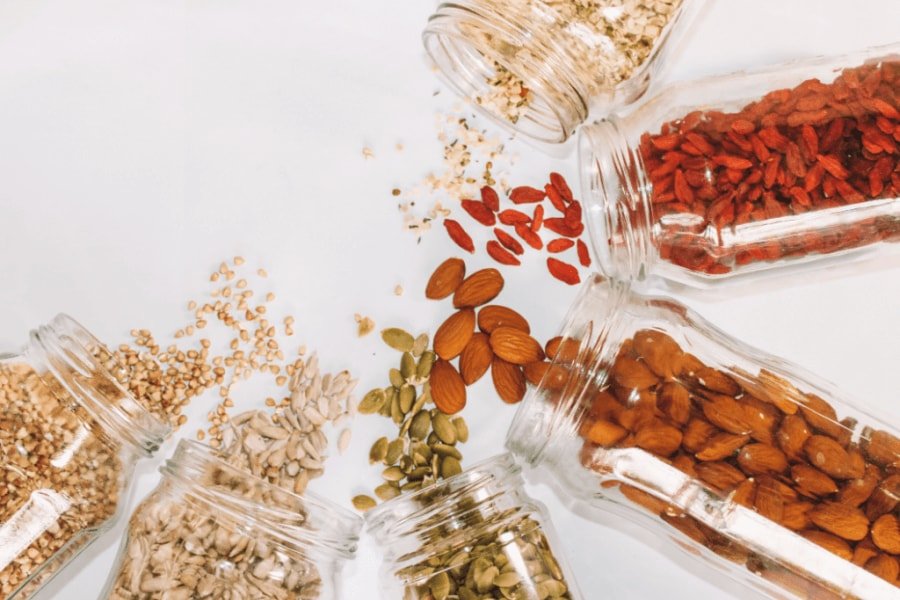Painful or heavy periods is the bane of most of my clients, and many of them are quite period literate: they have managed their stress, they are off the pill, they are eating healthy foods, lowering their inflammation and working on their oestrogen dominance, and yet they are still having mysterious issues causing period problems and in this case, I will ask them to consider that their thyroid is causing the issue.
Unfortunately, when I often refer women out to get their thyroid tested as they show symptoms of hypothyroid (when your thyroid isn’t working as much as it should be), such as low energy, feeling cold, hair thinning and loss, weight gain, difficulty losing weight, dry and rough skin, muscle aches and cramps; they get told they don’t really have issues, it is in their head or their thyroid is fine. I wrote a blog post explaining why this may not be the case as doctors don’t always understand where the thyroid test ranges came from, why they are inaccurate and may lead to you being told your thyroid is fine.
And whist many people will say that it makes sense that your thyroid impacts your menstrual cycle as it impacts every system in your body, I thought it is time to look at it in more detail on its own.
How Oestrogen Affects Your Thyroid
Oestrogen, the hormone that dominates the first phase of your menstrual cycle releases Thyroid Binding Globulin (TBG) which is a hormone that suppresses your thyroid function. If you have the right oestrogen levels, then you will produce the right amount of oestrogen and therefore the right amount of TBG, so your thyroid will work as expected.
If your oestrogen level is too high, you will produce too much TBG and start to see signs of hypothyroid.
Progesterone and the Thyroid
Progesterone not only nourishes the thyroid, it has a very interesting bi-directional relationship with the thyroid.

The thyroid is nourished and stimulated by progesterone to warm up the body during the luteal phase. This is so that any potential fertilised egg will be nourished in the womb lining is kept warm like in an incubator until a placenta grows.
So if you are oestrogen dominant, you will not have enough progesterone stimulating the thyroid, to overcome the effect of TBG from oestrogen. So your thyroid will not be as effective as it should be, resulting in signs of hypothyroidism.
Furthermore, thyroid hormones are needed in the right amount to add the process of producing pregnenalone, the material required to make progesterone and cortisol, so if you don’t produce enough thyroid hormone, you will not make enough progesterone.
Not enough progesterone in comparison to oestrogen means you will have signs of oestrogen dominance which can include: heavy periods, painful periods, fibroids, endometriosis, PMS, excess bleeding, fibroids and painful breasts.
And let’s go back to oestrogen for a minute, not enough oestrogen or no ovulation means that you will not produce progesterone so low oestrogen and not having a menstrual cycle will cause issues too.
So as you can see, your thyroid affects your period and your period hormones affect your thyroid. I will be sharing more about thyroid issues over the coming weeks so be sure to stay tuned for more.




